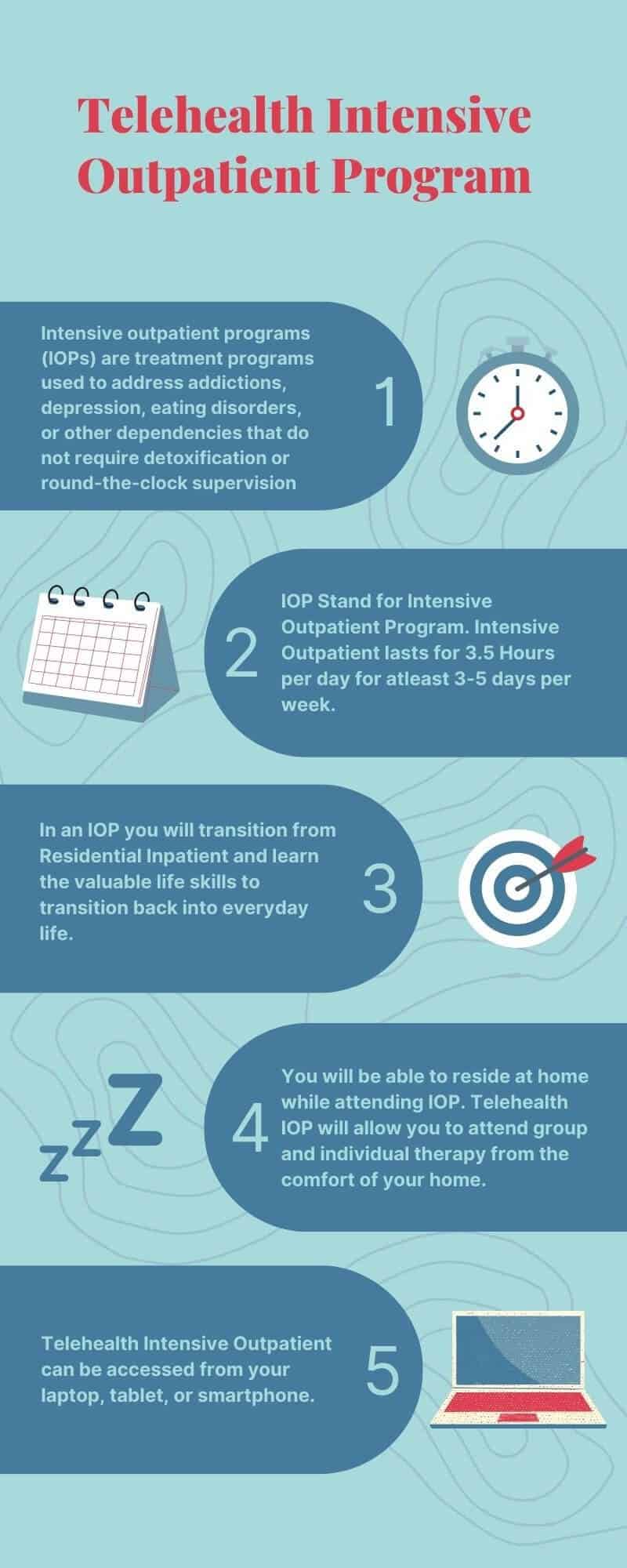Why an Intensive Outpatient Program (IOP) is Necessary for Long-term Recuperation.
Why an Intensive Outpatient Program (IOP) is Necessary for Long-term Recuperation.
Blog Article
Browsing the Intricacies of Twin Medical Diagnosis Therapy Within an Extensive Outpatient Program Setting
In the world of mental wellness and dependency treatment, the crossway of double medical diagnosis provides a nuanced difficulty that requires a detailed and tailored method. By discovering the complexities of dual medical diagnosis therapy within this intensive outpatient context, a more clear course emerges towards all natural and sustainable recuperation for those grappling with these linked difficulties.
Double Medical Diagnosis Introduction

Recognizing dual medical diagnosis is essential as it needs a comprehensive and integrated approach to therapy. By acknowledging the interplay in between compound use and psychological wellness, health care providers can customize interventions to fulfill the special requirements of each person. This alternative method not just addresses signs yet likewise targets underlying aspects that add to the dual diagnosis.
Moreover, untreated dual diagnosis can lead to a cycle of regression and worsening mental wellness symptoms. By acknowledging the intricacy of double medical diagnosis and offering specific treatment, medical care professionals can sustain people in accomplishing lasting recovery and improved mental wellness.
Tailored Therapy Plans
Acknowledging the detailed interplay in between substance usage problems and mental health problems, the growth of customized treatment strategies is vital in addressing the complexities of twin medical diagnosis in mental health treatment. Tailored treatment strategies are personalized techniques that take into consideration the unique needs, difficulties, and goals of people encountering dual diagnosis. These plans are created collaboratively by a multidisciplinary group of specialists, consisting of psychoanalysts, psychologists, social employees, and dependency specialists, to ensure extensive and integrated care.
Tailored treatment plans usually involve a combination of therapies, medications, and behavioral treatments that target both the material usage problem and the psychological health problem at the same time. These strategies may consist of cognitive-behavioral therapy, dialectical behavior treatment, medication-assisted treatment, private counseling, group therapy, and household therapy, amongst various other evidence-based interventions. By personalizing treatment approaches to specific scenarios, customized plans can address the origin triggers of double diagnosis, advertise long-lasting healing, and enhance general quality of life for people battling with co-occurring conditions.
Integrated Care Strategy
An integrated care approach in double diagnosis therapy integrates clinical, mental, and social interventions to attend to the complex demands of individuals with co-occurring material use problems and mental wellness conditions. This strategy recognizes that dealing with one aspect of a twin diagnosis without resolving the other can bring about inefficient end results. By incorporating medical treatments such as medication administration for psychological health problems with emotional therapies like cognitive-behavioral treatment for substance use conditions, people receive thorough treatment that targets all facets of their double medical diagnosis.
By integrating social interventions like family treatment, employment support, and community sources, the therapy find more information ends up being a lot more alternative and tailored to the individual's specific demands - Intensive Outpatient Program (IOP). On the whole, an incorporated care approach in twin medical diagnosis treatment within an extensive outpatient program setup aims to provide thorough, efficient, and personalized treatment to individuals facing co-occurring problems.
Difficulties in IOP Setting
In the context of twin diagnosis therapy within an extensive outpatient program, navigating the intricacies of co-occurring substance usage disorders and psychological health and wellness conditions offers significant obstacles. One of the key obstacles in the IOP setup is the coordination of treatment between psychological health specialists and chemical abuse experts to make certain a detailed therapy technique. This calls for efficient interaction, collaboration, and a deep understanding of just how these conditions communicate and influence each various other.

In addition, attending to preconception and resistance to treatment within the IOP setting can hamper progression. Some people may be hesitant to reveal their twin medical diagnosis or may feel ashamed, impeding read here their involvement in the healing process. Conquering these barriers requires a supportive and non-judgmental setting that fosters count on and openness.

Collaborative Professional Initiatives
Reliable dual diagnosis treatment in an intensive outpatient program necessitates seamless collaboration among psychological wellness professionals and compound misuse specialists to guarantee a thorough and integrated technique to care. By functioning together, these experts can produce customized therapy plans that cater to the one-of-a-kind needs of each individual, taking into consideration both their psychological health and substance abuse difficulties.
Joint initiatives also encompass normal interaction and details sharing amongst group participants to guarantee you could look here a natural treatment method. This might involve situation seminars, joint sessions with the person, or shared documents to track progression and readjust therapy approaches as needed. In addition, cooperation might consist of involving other healthcare professionals such as health care physicians or family specialists to give all natural assistance to the client. Eventually, a united front of professionals collaborating boosts the performance of double diagnosis treatment within an extensive outpatient program.
Conclusion
In verdict, reliable twin medical diagnosis therapy within an intensive outpatient program setting calls for customized treatment plans and an integrated treatment strategy. Obstacles might develop in this setting, yet collaborative efforts amongst specialists can assist navigate these complexities. By addressing the unique demands of individuals with co-occurring psychological health and wellness and compound utilize conditions, IOP programs can offer thorough and all natural like support healing and total health.
Report this page